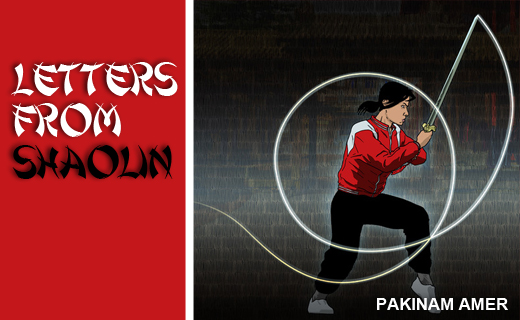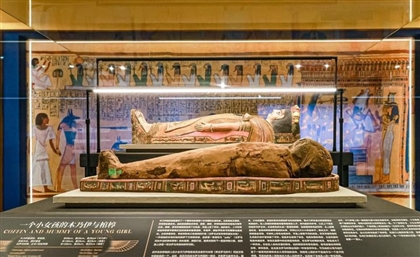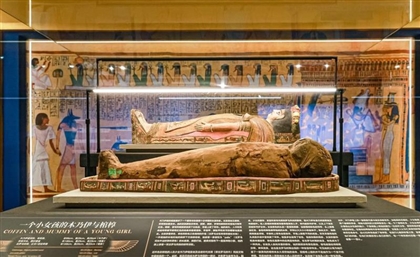Snakes, Maspero & Nirvana
Before the awakening comes bad dreams.

It is said that before reaching samadhi —a state of total absorption, transcendence; a spiritual merging with the Divine— Buddha was sent dreams of world destruction, falling stars, collision and loss. In Buddhism dreams are false and illusory; they symbolize the imperfect nature of the senses.
To Buddhists, not unlike to Muslims, our dreams are dreams within dreams; it is believed that one day we will awaken from this life, in itself nothing but a false dream.
Many Buddhists also believe that whatever we overcome or cultivate in the dream state can be cultivated in reality; the dream is but a visualization of what we are capable of (even if not on a conscious level) in the awakened state. So for instance, if you manage to overcome a fear in a dream or cultivate compassion in the face of suffering, you might be able to do the same in reality; it’s a message from your soul that you can do it. Both states mirror each other. Whatever you do in one state, you can replicate in the other.
And whatever you fear or cower from in a state, comes out in the other too.
Chris dreamt he was being chased by snakes, while I dreamt of being stuck in a job I hated in Maspero, and of being robbed of all my belongings.

Chris is the super-ripped, and quite accomplished Aussie student who has been living on this Kung Fu camp for more than a year, after quitting a job in an oil company. He’s now taking lessons in Sanda-style fighting, and in a way is a Kung Fu nerd. A few months ago, he used to live in the Chinese dorms inside the school and shared a room with at least three other Chinese students.
While we were having breakfast one day in the great hall (humor me!), Chinese classmates kept coming up to him, recounting something in Mandarin, some suppressing giggles while others bursting with laughter. It looked to me like they were sharing some sort of an inside joke.
“It’s just that I had this nightmare last night,” Chris explained to me. “It was so scary, I practically jumped out of my bed, and into the one right next to me. I think I screamed too.” He told me that his roommates found it hilarious and ended up telling their friends, and now word is going around school and the students are sharing the funny anecdote.
“What was the nightmare about?” I asked, humored by the story.
“Snakes,” he responded. “It’s always snakes. Loads of them.”
“Were you attacked by any snakes here in the school, or in Dengfeng?” I asked, a tad bit alarmed.
“No, no. But we had snakes back in Australia,” he said.
“Poisonous?”
“Hell yeah,” said Chris.
It was certainly funny to imagine Chris —a hunk passionate about Kung Fu, deemed “unbeatable” by his Chinese classmates (he once knocked out his opponent cold during a tournament with a superb kick, and everyone refused to fight him afterward), usually gung ho and a little cheeky— coming out of a dream sweating, screaming, and bouncing off his bed.
I didn’t share with him the intricate details of my own dream experiences —also of fears originating from home, now a land so far away— but I told him I can definitely relate.
Only a day before that conversation with Chris, it suddenly struck me while I was hiking in the hills near the Shaolin Temple that despite being absorbed in the training and this novel experience, I had been leading a separate, more turbulent life … in my dreams. At that moment I whipped out my phone and decided to text my sister. “I’ve been having strange dreams lately,” I wrote.
I was worried, because I didn’t know what they meant. It wasn’t like the dreams influenced my mood or affected my day; they didn’t. And I always wake up rested. “But the dreams, as I experience them, are very vivid, very powerful,” I explained to her.
Once in China, my old troubles seemed so far away. But there was something I was doing during the day —perhaps heightened concentration on learning something so fresh and foreign to me— that seemed to push down all other thoughts and worries, rendering them irrelevant.
“But whatever is suppressed during the day seems to be released during the night. It’s like I’m leading two separate lives,” I wrote to her. She responded by saying that perhaps this is part of healing; that healing is not the absence of problems or fears but is how we separate ourselves from them, and how we prevent them from influencing us.
It was a good response, one that Buddha himself might have agreed with.

You see, in Buddhism, dreams are false, because they’re attachments to conditioned states. But they’re also a test: Are you ready to leave whatever you’re clinging to behind?
Our souls are filled with afflictions and pains. To be enlightened is to be empty of all this, to stop needing all this.
So perhaps like my sister said, I’m just emptying my vessel. The pains had left my awakened state, and descended into my dream state.
And soon when I heal completely, they will leave my dreams too. Perhaps then, there will be no need for illusions, suffering or dreams.
And I say “need” because we cling on, willingly. We hang on to pain sometimes simply because we know it too well, we’re afraid that without it we might not recognize ourselves anymore.
You see, reaching Nirvana is as much about asking questions, opening yourself up for compassion and love, as well as annihilation time after another, as it is about making a decision to let go.
It’s not only about the question of “how can I stop suffering?” but about “Do I want to?”
- Previous Article I Got Banged!
- Next Article Dalia Does…Feminism
























